Trinidad & Tobago
'Flip-flops' on Sandals' story
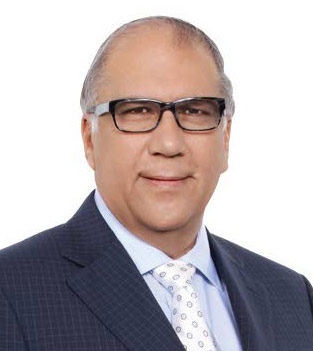
Port-of-Spain – Opposition Leader Kamla Persad-Bissessar last week wondered who was telling the truth about Sandals leaving Tobago. Her question came following comments made by businessman Arthur Lok Jack, who said the opposition was to blame. Persad-Bissessar said in the wake of Lok Jack’s commentary, she was left wondering who is telling the truth: was it Prime Minister Keith Rowley; or National Security and Communications Minister Stuart Young and Gebhard Rainer, CEO Sandals Resorts; or was it Lok Jack?
Said Persad-Bissessar: “If Mr Lok Jack is correct, then it means these three other persons would have been not speaking the truth. So what is the truth? The questions arise now: what are the real facts surrounding the arrival of Sandals here?”
She added: “Mr Lok Jack has given one version, the Prime Minister had told the country that he had met the Sandals people at a TTMA (Trinidad and Tobago Manufacturers Association) meeting, so which is truth? Secondly, questions arise further as to why they left? The Prime Minister, the CEO and Minister Young all told the country they left because of bad publicity. Today, Mr Lok Jack is saying they left because of the Opposition. It gets curiouser and curiouser each time more allegations come forward.”
Persad-Bissessar said Lok Jack was reported to have stated the Sandals project was conceptualised at a dinner party at his house, and it was he who pitched the idea to Stewart after a long time trying to convince him to set up in Tobago.
She noted further the Sandals pull-out was blamed on the “bad publicity”, but now the Opposition is being blamed. She said the proposed project remains mired in controversy, even in the aftermath of its demise. She added the Opposition has a role to play in demanding transparency and accountability.
“It is always within the remit of the Opposition to raise questions and concerns on issues of national importance, and on issues where the public purse is being deployed, especially with such a megaproject. I make no excuses with the fact the Opposition voiced concerns about transparency and accountability. We are carrying out our duties and responsibilities,” she said.
Persad-Bissessar questioned whether Lok Jack was referring to the official Opposition, or the collective opposition voices, both inside and outside the Parliament, that raised concerns about the project.
“If it is all the other voices, civil society voices; there were many other stakeholder voices raised in this matter concerning several questions to be answered. If they are part of the opposition, I suppose it’s not just the official Opposition, of whom we are, but there were other persons who spoke out in opposition and voiced their concerns,” she said.
She said she was not surprised by the blame being levelled against the Opposition.
Persad-Bissessar’s comments came following Lok Jack stating Gordon “Butch” Stewart did not leave the Tobago Sandals project because of “negative publicity”, but because of the Opposition. Lok Jack is a long-time friend of Stewart.
Said Lok Jack: “Butch Stewart didn’t run away because he was agitated by the press. That is not the point. The point was when he saw what the Opposition statements were. That is what killed the deal.”
At the time, Lok Jack was addressing an audience at a panel discussion at UWI, St Augustine, on the economic implications of the termination of the Tobago Sandals deal.
He suggested the Opposition ended up making things worse for their own supporters, since those benefiting the most from the resort in Tobago would have been farmers, who are among the UNC’s traditional base.
“I don’t understand. The thing is, the farms, (Sandals is) going to have the tremendous amount of demand …for agriculture as far as I am concerned, and you know that for business people and investment, supply follows demand – not the other way around. But once I create the demand, who is going to benefit with the farming?” he said.
Additionally, “It’s the same people in the UNC, the Indian constituencies in this country who are the farmers (and farmers in Tobago too). But you put everything out. I was at a loss to understand why this project went belly up.”
Stating that if Stewart were to change his mind about coming back to Tobago, Lok Jack indicated confidence in easily raising at least (US) $250 million from the local private sector to invest.
“But he has to want to change his mind. We are not going to invest in a hotel in Tobago for somebody else. Because I don’t know who that somebody else is and what their track record is. It might be high risk. When I invest in Mr Stewart, I know it is very low risk,” he said.
The Sandals project was first conceptualised at a dinner party at his house, Lok Jack said, when he was able to pitch the idea to Stewart after a long time trying to convince him to set up in Tobago.
Said Lok Jack: “Tobago is not on the tourism map at the moment. I’ve known Mr Stewart for years and I’ve been trying to get him to come to Tobago for a long time to put a Sandals here and eventually he said, 'Okay, fine,' and he came down and talked, and I got Dr Rowley to come and we had a very small thing – and bam!”
tourism market
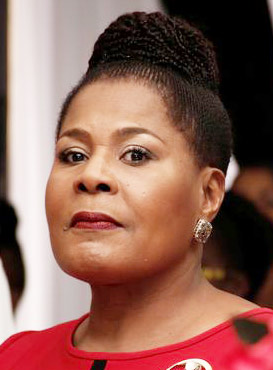
Noting that other destinations around the world are doing more with fewer resources than Tobago, she told the 23rd plenary sitting of the THA: “Barefooted or shod Tobago must strategically position itself as a serious player in the global tourism industry. I have traveled to many countries with far less to offer by way of natural attractions than Tobago, yet they are prominent on the radar of international travelers. They have made much of little and it would be a crying shame if Tobago with its abundance of natural appeal does not secure its fair share of the market.”
On the issue of domestic tourism, the President highlighted the inefficiencies in the sea and air bridges.
“Despite valiant attempts to provide reliable service between the islands, one must admit there are some ways to go before it can be described as optimal. While the flow between the islands is affected both ways, it is Tobagonians and those resident in Tobago that really feel the pinch. The full range of tertiary offerings, certain specialist medical services and visa applications all call for a visit to Trinidad with the attendant inconvenience and financial burden.
“Dependable transport between the islands will provide some degree of comfort, of course there are districts in Trinidad which may not have easy access to those services either, but Tobago residents start out at a disadvantage of having to factor in the cost of boat or airfare and possibly accommodation even before they face the common difficulties,” she said.
THA Presiding Officer Dr Denise Tsoiafatt-Angus said that President Weekes had dispelled any notion of tokenism for women attempting to reach great heights.
“Your message has been consistently advocating for us to do better and to be better in our lives. Through your activities, we see your commitment to nurturing better people, your capacity to analyse the challenges of this complex society and the courage to candidly and openly commend great achievements while discussing shortcomings,” she said.
Chief Secretary Kelvin Charles thanked the President for including Tobago in her agenda. He said her efforts to set up a temporary Office of the President in Tobago “speaks strongly of your character, professionalism, and adherence to your oath”.
THA’s Minority Leader Watson Duke commended the President for her efforts to connect with the people of Tobago.
“Become a champion and advocate for Tobago being an industrious society again, agriculture needs to become more thriving and not just a plaything,” he said.
Weekes said she is looking at the feasibility of setting up a permanent office in Tobago after receiving many requests from Tobagonians.
Take guns off street – Anglican bishop
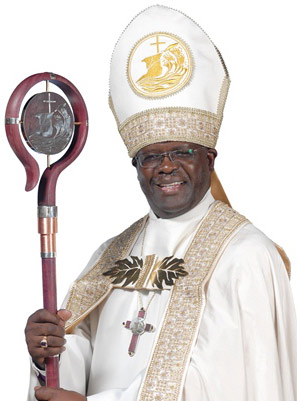
Berkley’s statement came following the shooting and wounding of a reverend in the Anglican Church, Gerald Hendrickson. He is currently assigned to the St Margaret of Antioch Anglican Church & St Jerome's Mission in Belmont.
Hendrickson was a bystander during a gun chase by two men in Port-of-Spain on Tuesday afternoon of last week. He was in the wrong place at the wrong time, and was innocently shot when one of the men opened fire.
“One of the issues that we have to deal with is tackling the feeling that people can get away with the commission of crimes or that they will not be caught. That kind of urge and feeling has led to a sense of brazenness and disrespect for law and order and seeking to promote some chaos on our streets and in our communities,” Berkely said.
He also said there was need for prayers and teachings in the nation’s schools and homes, especially for the younger ones, as they need to be taught the importance of having a sense of civic and public responsibility.
“There is a need for some drastic action to help push back this kind of wanton and runaway situation where people feel they can act if they are angry... they can just respond to their anger and be without that self-control and self-discipline, to hurt and even kill other people who are not even involved in their own conflict,” he said.
Police said Hendrickson had just stepped out of a store at Prince Street and was on his way to purchase food when a man who was being chased by a gunman entered the same store. The gunman opened fire in the direction of the individual he was chasing and Hendrickson was hit twice in the stomach. Police said they recovered 14 spent shells and one live round on the scene. The suspect in the shooting was detained by police officers at Nelson Street within minutes.
Berkley confirmed that Hendrickson’s condition is serious, but not critical.
“…I was told that he is in pain and somewhat restricted given the aftermath of the surgery that he undertook. However, we are praying for him and a speedy recovery,” Berkely said.
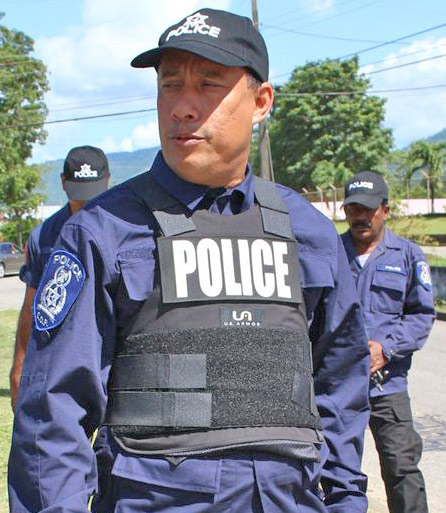
This was revealed at a Joint Select Committee into National Security, chaired by Fitzgerald Hinds. During the meeting, Police Commissioner Gary Griffith and Deputy Commissioners Deodath Dulalchan and Harold Phillip were questioned on the operations of the police service.
Member Roodal Moonilal questioned Griffith on the police plan to protect Trinidad and Tobago’s maritime borders in light of infiltration of illegal migrants and criminals coming in via the sea; also six local fishermen were recently kidnapped.
Griffith said the TTPS had intensified its efforts to protect the country’s sea borders by working with intelligence gathering. The information gathered would be shared with the Coast Guard, Customs and Excise, Strategic Services Agency, Defence Force, and Immigration Division.
“We intend to have a covert operative unit to ensure that we can have individuals who can provide information to us without the criminal being aware. We will have troops that will work covert and overt in the right manner to ensure that we can have that border secured,” Griffith said.
Griffith said he had no intention of shirking his responsibilities. After hearing complaints that some members of the TTPS, who worked at Icacos, Cedros, La Breas, and Erin had been working with gun and drug runners, Griffith said some officers were asked to take a polygraph test, and those who refused were transferred. Also, an elite unit was created to crack down on the illegal activities.
“In the very near future, we intend to utilise air surveillance in the TTPS. It will be complemented by the drones. We will be able to monitor that peninsula on a 24/7 basis in real time through the National Operations Command Centre. So what you going to get is real-time footage monitoring the situation having proper intelligence gathering making sure that we have the right police officers we can trust,” Griffith said.
Moonilal said this was the first time he heard of such a unit in the TTPS and pressed Griffith to explain its functions and status.
“We are aware that there is a clear and present danger in dealing with what is happening in the mainland. We will be redeploying personnel from specific areas into the unit that we can see that will be a greater concern. And that is being done by February 1,” Griffith said.
Griffith said while the TTPS had an air division using drones, these were not of high standard. “The drones are just a higher standard to what you would get in Toys R Us. We need to move with the times,” he said.
Moonilal told Griffith that the Air Unit was critical, given the challenges we faced in Venezuela, asking if the drones needed to be improved technology-wise.
Griffith said the improvement of the drones would involve taking footage for several hours on and off Coast Guard vessels.
“We must get real-time video footage. This is what we have prepared ...this would be done within a few days. And by doing that we would be able to monitor and lock the borders as quickly as possible,” Griffith responded.
The commissioner also stated that the TTPS needed the use of helicopters as well for surveillance, and “to ensure the movement of troops ...say an immediate response by some of the elite units in case of a volatile situation”, he said.
Additionally, “We are looking at that. But I think from the concept of using helicopters because of cost, this is something we have been working with National Security Minister and through the National Security Council I think something is being prepared.”
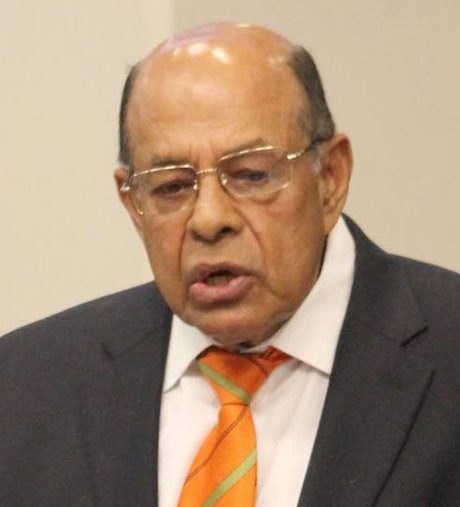
This was revealed on Friday by Finance Minister Colm Imbert in response to a query from Opposition MP Dr Fuad Khan about the amount of US currency used for credit card payments last year.
Imbert said compared to the previous years, credit card transactions were far less.
In 2010, the credit card transactions figure was $343 million compared to $766 million in 2015.
In a follow-up question, Khan asked Imbert why the public was faced with a shortage of foreign exchange to do day-to-day transactions.
Imbert said Khan’s question was speculative and asked him to rephrase.
Caroni East MP Dr Tim Gopeesingh intervened and asked Imbert what had led to the credit card payments now “engaging the Ministry of Finance in our regular meetings with the Central Banks”.
Imbert said the initial response from that was more purchases are being made online compared with traditional retail transactions.
In a follow-up question, Gopeesingh asked Imbert if this was due to the difficulties being experienced by local businesses in obtaining foreign exchange.
Imbert refused to speculate, stating it was a complex matter.
“There is absolutely no doubt that there is a shift in cultural patterns in Trinidad and Tobago and a shift to online purchases which is happening all over the world,” he said.
As to the total amount of US currency injected into the local banks and financial institutions last year, Imbert said the Central Bank sold $1.5 billion to authorised dealers.
He said net currency assets in commercials banks at the end of the third quarter of 2018 stood at $2.734 billion.
Following the Petrotrin closure last November, the government also stopped the importation of this fuel, mostly used by fishermen.
President of the co-operative Salim Gool sent a letter dated January 7 to Dr Rowley and copied it to Energy Minister Franklin Khan, Agriculture Minister Clarence Rambharat and Planning and Development Minister Camille Robinson-Regis, outlining the hardship the fishermen are facing and asking for urgent intervention.
Gool said the co-operative is yet to receive a response, and has turned to the media to reinforce its appeal.
He said super gas which is retailed at (TT) $4.97, compared to the $2.60 per litre for regular gas, is not only more expensive but can cause damage boat engines.
Super gasoline was not designed to be used in boat engines, he said, since these are made partly of aluminium and steel, “so using super gas in boat engines can cause it to lose power. Super gas can also melt the pistons and bearing arms”.
Said Gool: “We use more fuel per hour than an average car. Fishing boats are usually equipped with two to three booms containing 63 litres per boom. We use approximately 40 litres per hour when fishing.”
Gool said increasing fish prices was not an option.
Khan has said regular gas is not a viable option for the government, based on the importation of the small volume of between 8,000 and 10,000 barrels a month for the fishermen’s use.
Company chairman Jerry Hospedales said the sum included a $4 billion debt write-off, plus money to fund pensions, training, and the development of agricultural and residential lots, shedding light on company accounts from 2010-18.
Hospedales said it was the first ever wind-up of such a state company in Trinidad and Tobago, while committee member Wade Mark said the process of this closure had lessons for other state companies now being shut down, most notably Petrotrin.
Committee members remained impartial throughout most of the hearing, but members Dr Tim Gopeesingh and Fitzgerald Hinds indirectly sparred over the $10 billion sum.
While Hospedales reiterated that much of the sum was spent on preparing land lots for ex-workers, Hinds scoffed, “Gifts! Gifts!”, and Gopeesingh retorted, “But wouldn’t it be terrible to remove workers from their jobs without giving them something? What are your thoughts?”
Hospedales refused to be drawn into the politicising, saying his job was simply to deliver in line with an Industrial Court order.
Later, Hinds suggested if Caroni had not been closed, its cumulative losses could today have reached $35 billion. Saying Caroni’s cash balance fell from $62.5 million to $6 million between 2012 and 2018, when a past government refunded $57 million to ex-workers seeking two-acre plots, Hinds scoffed, “Isn’t this a wonderfully happy country?”
Replying to a query by Gopeesingh, Hospedales said 7,514 ex-workers had initially applied for VSEPP, with an extension giving a final figure of 8,855 people. Also, the company bought $227 million worth of annuities for 7,436 of its valid pensioners. The auction of equipment had earned the company $13 million.
Company support staff member Alisha Hosein said 182 vehicles were sold as scrap, as they were old and unworkable. The committee also asked about four large vehicles such as tractors which went missing. Mark asked for written details of both the sold and missing vehicles.
Russell Boland, head of Caroni's Land Information Delivery, said 5,218 acres of Caroni lands had been assigned to the National Energy Company, eTecK and Estate Management and Business Development (EMBD) Company for business-commercial activities. Agricultural tenants occupy 11,000 acres of Caroni lands, he added.
Gopeesingh asked the fate of Caroni’s 224 bungalows, to which Hospedales replied that 142 were occupied by people as a condition of their service, while 15 had tenants, and others held public officials.
In his closing remarks, Hospedales said the company had cut its staff from 180 in 2004, to 54 in 2018, to 37 at present. He said 6,005 agricultural lots have been prepared for distribution for ex-workers, but of these the company could not find 1,114 individuals.
